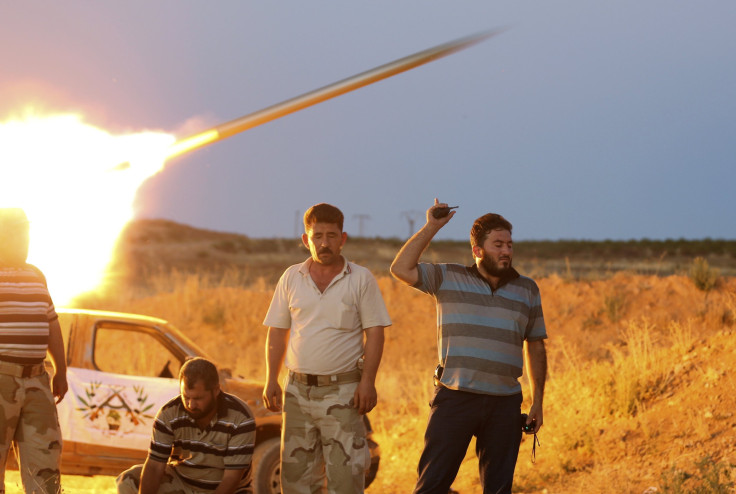US Funds, Trains And Arms The 'Moderate Opposition' In Syria, But Who Are The Rebels?

To help America in its fight against the Islamic State, President Obama said, the U.S. would increase its support for the moderate opposition in Syria, and would rely on the group to help it "degrade and destroy" the Sunni militants, also known as ISIS or ISIL.
"Tonight, I again call on Congress to give us additional authorities and resources to train and equip these fighters," Obama said. "In the fight against ISIL, we cannot rely on an Assad regime that terrorizes its people; a regime that will never regain the legitimacy it has lost."
The U.S. is already training hundreds of vetted rebels in Jordan, and equipping them with weapons. Most of those rebels are fighting under the umbrella of the Free Syrian Army (FSA) -- the first major opposition group to form and fight President Bashar al-Assad's forces in Syria in 2011.
The FSA is one of the largest groups fighting in Syria and includes a diverse group of warriors including men (and some women) from all parts of the country. When the group first formed, it was a ragtag team of local men who had bought or stolen weapons from Syrian soldiers to fight the military in the streets.
By the summer of 2012, the majority of opposition fighters claimed to be fighting with the FSA. There were hundreds of battalions, some as small as a few men, others as large as a few hundred. But at that time, many of the men fighting on the frontline, especially in Aleppo Province, were Salafists, a conservative sect of Islam.
Since then, the group has not only grown in size, but also in strength and legitimacy, receiving donations from wealthy Arab businessmen from countries like Libya and Saudi Arabia, and gaining recognition on the world stage. Members of the group are part of the opposition coalition that has previously met with the U.N. and Western leaders about peace negotiations with the regime.
The group, though, has also fractured as a result of deep rivalries between battalions. In the past two years, the infighting has led some senior U.S. politicians to question whether the FSA can be a reliable partner.
FSA rebels have for months now asked the U.S. to ramp up its support for them, claiming the weapons it possesses are no match against Assad's military forces. In May, the FSA lost control of Homs, once known as the "heart of the revolution" and one of the opposition's main strongholds.
Rebel forces pulled out of Homs in the beginning of May after an almost two-year siege, in a deal between opposition leaders that military officials. The deal gave control of the city to the government and allowed for the rebels’ safe evacuation. The withdrawal from the city, while not disastrous strategically for the opposition, underscored why it needs weapons that will give it a fighting chance against the military’s firepower.
One month later, Obama asked Congress for an additional $500 million to prop up the opposition in Syria. It is unclear whether the money Obama asked Congress to approve Wednesday night in his speech is in addition to the previous request.
"We must strengthen the opposition as the best counterwight to extremists like ISIL, while pursuing the political solution necessary to solve Syria's crisis once and for all," Obama said.
© Copyright IBTimes 2025. All rights reserved.




















